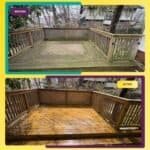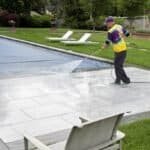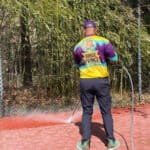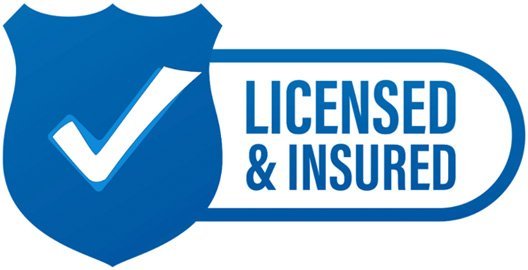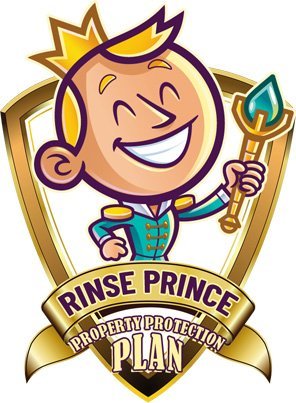When it comes to cleaning the exterior of your home or business, you’ve probably heard of both pressure washing and soft washing. But what’s the real difference between these two methods? And more importantly, how do you know which one is best for your specific cleaning needs? We’re here to help you understand the distinctions so you can make an informed decision to protect and beautify your property.
Key Takeaways:
- Pressure washing uses high-pressure water to clean hard surfaces like driveways, sidewalks, and patios.
- Soft washing uses low-pressure water and specialized cleaning solutions to safely clean delicate surfaces like roofs and siding.
- Using the wrong method can damage surfaces, so it’s crucial to choose the right approach.
- Rinse Prince serves homeowners and businesses with both pressure washing and soft washing in locations throughout the region.
- Professional services save you time and ensure the job is done thoroughly and safely.
What is Pressure Washing?
Pressure washing is a method that uses high-pressure water (typically 1,300–4,000 PSI) to blast away dirt, grime, mold, and stains from hard surfaces. It’s ideal for cleaning driveways, sidewalks, concrete patios, and brick walls, essentially any durable surface that can withstand the force of pressurized water.
The benefits of pressure washing include:
- Fast and effective removal of tough stains like oil, grease, and algae
- Restores the look of hard surfaces by eliminating years of built-up grime
- Prepares surfaces for painting or sealing
However, using high pressure on the wrong surface like wood siding or roof shingles, can cause damage, strip paint, and even force water into the structure of your home.
What is Soft Washing?
Soft washing, on the other hand, uses low-pressure water combined with biodegradable cleaning solutions to gently clean more delicate surfaces. This method is ideal for:
- Roof cleaning – safely removes algae, moss, and lichen without damaging shingles
- Siding cleaning – ideal for vinyl, stucco, or wood siding, where high pressure could cause harm
- Fences and decks – cleans thoroughly without splintering wood or damaging paint
Soft washing doesn’t rely on pressure but rather on specialized cleaners that break down mold, mildew, and organic stains. This makes it a safer and longer-lasting option for many surfaces around your property.
Which Method is Best for Your Property?
Choosing between pressure washing and soft washing comes down to understanding your property’s materials, the type of dirt or stains, and the long-term impact of each method.
Here’s a closer look at how to decide:
For Tough, Durable Surfaces: Choose Pressure Washing
Pressure washing is the go-to solution for hardscapes and durable surfaces that can handle the force of high-pressure water.
- Driveways and sidewalks: Remove built-up dirt, grime, oil stains, and algae.
- Concrete and brick walls: Eliminate years of weathering, graffiti, and discoloration.
- Stone patios and retaining walls: Blast away moss, mildew, and grime without damaging the integrity of the stone.
Keep in mind: While pressure washing is highly effective, it’s important to use the correct PSI and nozzle to avoid surface etching or accidental damage. Our professionals at Rinse Prince are trained to adjust settings to match each surface.
For Delicate or Painted Surfaces: Choose Soft Washing
Soft washing is perfect for areas where high-pressure water might cause damage:
- Roof cleaning: Shingles, especially asphalt or cedar, can be dislodged or waterlogged with pressure washing. Soft washing gently removes black streaks, moss, and algae while extending your roof’s life.
- Siding: Vinyl, wood, stucco, and painted surfaces can crack, peel, or allow water intrusion with pressure washing. Soft washing protects these surfaces while effectively removing dirt and biological growth.
- Decks and fences: Wood, especially aged or stained wood, can splinter or lose its finish under high pressure. Soft washing keeps the surface intact and looking great.
Consider the Type of Stains and Build-Up
- If you’re battling tough stains like oil spills, rust marks, or tire marks, pressure washing is best.
- For organic stains like mold, mildew, algae, or lichen, soft washing with specialized cleaning solutions ensures thorough removal without surface damage.
Think Long-Term Protection
While both methods clean effectively, soft washing’s use of biodegradable cleaners means it doesn’t just clean the surface, it also kills the spores and bacteria causing the stains, leading to longer-lasting results.
Contact Rinse Prince Today
Whether your home needs a powerful pressure wash or a gentle soft wash, Rinse Prince has the expertise and equipment to make your property shine. Don’t risk damage with DIY methods; trust the professionals to get the job done right the first time. Call to learn more.


